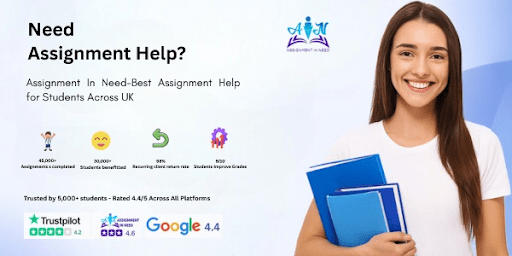What It’s Like Working With Academic Editors

Introduction
For many students, especially those juggling deadlines and exams, Assignment help UK searches often lead to quick solutions. Yet, behind every well-polished paper lies a process that is frequently overlooked-working with academic editors. These professionals don’t just fix grammar or formatting; they transform rough drafts into coherent, academically strong submissions that meet institutional standards.
Whether you’re seeking academic assignment help, relying on writing services, or exploring assignment help manchester services through an assignment help website, understanding what it’s like to collaborate with an editor can make the experience less intimidating and far more rewarding. This article dives deep into the first-hand experience of working with academic editors, what they really do, and how students can benefit from their expertise.
The Role of Academic Editors: More Than Grammar Police
When students hear “editor,” many assume their role is limited to fixing typos and grammar errors. In reality, academic editors perform much more:
- Structural improvements: Ensuring ideas flow logically, with strong transitions between sections.
- Clarity and tone: Adjusting phrasing so arguments are clear, concise, and aligned with academic expectations.
- Formatting and referencing: Adhering to strict styles like APA, MLA, or Harvard.
- Critical feedback: Highlighting weaknesses in arguments or areas that require more evidence.
From essays to dissertations, editors bring an external perspective that students often lack. For instance, a student writing on a complex economics topic may be too immersed in the content to spot unclear explanations. An editor, however, can immediately flag and refine these areas.
In other words, editors bridge the gap between assignment writing help and academic excellence. They act as quality controllers who ensure that a submission not only meets but often exceeds academic standards.
What It Feels Like: The Student’s Perspective
1. Initial Hesitation
The first time a student works with an academic editor, there’s often hesitation. Questions like:
- “Will they rewrite my paper completely?”
- “Will my voice be lost in the process?”
- “How much criticism should I expect?”
In reality, editors rarely strip away the student’s voice. Instead, they refine and elevate it. Students often describe the experience as having a “study partner” who is more skilled in academic conventions.
2. Constructive Feedback
Editors don’t simply correct errors-they explain them. For example, instead of just fixing a citation, they might note: “This reference should follow Harvard style; here’s the correct format.” Over time, students actually learn from the process, which reduces dependency on external writing services.
3. Confidence Boost
Many students report a surge of confidence after working with an editor. Submitting a polished assignment reduces stress and improves overall academic performance. This sense of security is particularly valuable for international students who may struggle with academic English.
The Skills Editors Bring to the Table
To appreciate the value of working with an academic editor, it’s useful to explore their skillset. These skills extend far beyond mere proofreading:
- Subject-matter expertise: Many editors specialise in specific fields such as law, medicine, or engineering. This ensures accurate terminology and context.
- Research evaluation: Editors can quickly spot weak or outdated sources and recommend stronger alternatives.
- Adaptability: Whether it’s a case study or a reflective essay, editors adjust their approach to suit the assignment type.
- Attention to detail: Precision in citations, headings, and formatting makes a huge difference to grades.
Students often compare editors to assignment helpers-individuals who don’t just support but actively guide them in improving the quality of their academic work.
Common Misconceptions About Academic Editors
Despite their importance, academic editors are sometimes misunderstood. Let’s clear up a few myths:
Myth 1: Editors Do the Work for You
Reality: Editors refine existing content but don’t create it. They ensure your ideas are well-structured and credible but never replace your academic contribution.
Myth 2: Only Weak Writers Need Editors
Reality: Even top students use editors. Just as published authors rely on editors before printing, students can benefit from professional polish to achieve higher grades.
Myth 3: Editing Is Just Proofreading
Reality: Editing goes far beyond spotting spelling errors. It includes structure, tone, argument clarity, and citation accuracy.
Why Students Turn to Academic Editors
Time Pressures
University life is hectic, and deadlines often clash. With multiple essays, projects, and exams, students may lack time to review their work thoroughly. Editors provide the finishing touch that time-constrained students can’t manage.
Language Barriers
For international students, writing fluently in English is a challenge. Editors ensure their work reads clearly while maintaining originality.
Grade Improvement
Editing often means the difference between a pass and a distinction. Polished assignments are more likely to impress professors.
Professional Presentation
Beyond grades, students benefit from learning how to present academic ideas in a professional manner. This skill carries over into careers where written communication is vital.
A Realistic Glimpse: What Happens During Editing
Working with an academic editor generally follows these steps:
- Submission: The student submits their draft, often alongside guidelines or rubrics.
- Review: The editor examines the structure, content, and style.
- Suggestions & Edits: Using tools like track changes, editors provide detailed corrections and explanations.
- Final Review: Students review the edits, accept/reject suggestions, and learn from the feedback.
For example, a student writing a research proposal on renewable energy might submit a draft with vague claims. The editor highlights the weak spots, recommends stronger evidence, and ensures references align with APA style. By the end, the proposal is sharp, persuasive, and academically sound.
Where Services Like Assignment In Need Fit In
Here’s where a service like Assignment In Need comes into play. Many students searching for online assignment help or exploring assignment writing help options are not only looking for someone to complete the work but also for guidance and editorial expertise.
Instead of delivering ready-made solutions, Assignment In Need bridges the gap by offering:
- Access to professional editors who understand academic expectations.
- Guidance on citation styles and formatting.
- Constructive feedback that helps students improve long-term writing skills.
- Affordable and reliable support compared to generic assignment help websites that may lack academic rigour.
This means students don’t just submit assignments-they grow as writers and researchers. For anyone overwhelmed by feedback or uncertain about academic conventions, using a trusted platform like Assignment In Need can provide the exact editorial support needed to succeed.
Tips for Maximising the Editor–Student Relationship
If you’re considering working with an academic editor, here are a few strategies to make the most of the experience:
- Provide clear instructions: Share rubrics, assignment guidelines, and personal preferences.
- Be open to feedback: Constructive criticism is meant to help you grow.
- Review carefully: Don’t just accept edits blindly-understand the reasoning.
- Communicate: Ask questions if an edit or suggestion isn’t clear.
By treating the process as a collaboration, students benefit more deeply from the expertise editors bring.
Conclusion
Working with academic editors can feel daunting at first, but the experience is transformative. From refining arguments to boosting confidence, editors play a crucial role in elevating academic work. They’re not just grammar checkers but partners in academic success who provide guidance, structure, and clarity.
For students juggling multiple deadlines, struggling with academic English, or simply aiming for higher grades, working with editors offers invaluable support. And with services like Assignment In Need (assignnmentinneed.com), finding skilled editorial help through reliable assignment help services has never been easier.
So, whether you’re browsing for assignment helper options or searching an assignment help website, remember that the editing process isn’t just about better grades-it’s about becoming a stronger, more confident academic writer.
Take the next step today: explore how Assignment In Need can support your academic journey.




